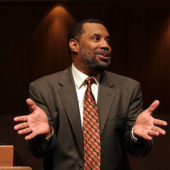I had a problem. I called up a friend and in the midst of our chatting I determined to act on the words of Proverbs 12:15: “The way of a fool is right in his own eyes, but a wise man listens to advice.” I asked for her advice.
But her words took me by surprise: “I don’t think I have wise counsel to offer about that.”
How often do we hear about asking for advice, seeking counsel, and being humble enough to listen to the wisdom of others? At the same time, we tend to learn little about giving advice or wise counsel. Few of us have been encouraged to be humble like my dear friend was, saying “I don’t have wisdom about that.”
God’s word is clear that we’re to exhort, challenge, encourage, and support one another.
Sometimes that means keeping what you consider “advice” to yourself.
So, before you share those words, ask yourself:
1. Is this fact or opinion?
In 1 Timothy 6 and 2 Timothy 2 we are admonished to rightly handle the truth and to avoid “babbling” about false knowledge.
Some matters are open to interpretation. When you present your opinion, make it clear that you’re not stating facts. Be honest that your words and knowledge are your own and that you might be wrong. Seasoned speech leaves room for God to overrule.
2. Is this about me?
You know the verse: “why worry about a speck in your friend’s eye when you have a log in your own?” (Matthew 7:3). These words aren’t just about criticism. Before you give advice, figure out if the “wisdom” you share is borne out of hypocrisy or a part of you projecting your own issues onto someone else.
3. Am I qualified to give this advice?
Back to 1 Timothy (a letter rich in wisdom about words, advice, and relationships!). The first chapter alone mentions “speculation rather than stewardship,” “vain discussion,” and failing to understand “either what they are saying or the things about which they make confident assertions.”
Would any advice you have to offer fall under one of those categories? If so, point to the Word of God or to those with more experience in the matter.
4. Is this worthwhile?
If your advice is vague, non-committal, or a lot like thinking out loud, ask yourself if you might be speaking empty words (Matthew 12:36). There may be other words, apart from advice, that would be more meaningful. Try sharing a verse, a prayer, or speaking as a friend instead of as a counselor.



















